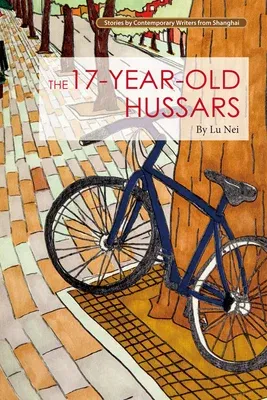The 17-Year-Old Hussars is a collection of two short novels about
the coming of age for teenagers in rapidly-changing 20th century
China.
The teens depicted in the first part of the collection, The
Seventeen-Year-Old Hussars, were the first lost generation of China as
the country went through the biggest social revolution in modern
history. Lucky to have missed the tumultuous Cultural Revolution days
when the old value system had been castigated as feudal and
retrogressive and when most of the schools were closed and only the
selected few were allowed college education, they were nevertheless
condemned to grow up in a virtual moral vacuum. Unable to get into
college-tracked key high schools, they entered career-tracked technical
schools, but the 40 hussars were still considered semi-losers, because
their secured future employment would also doom them to a relatively low
social status. You could almost feel the angst and pain of these
foul-mouthed teenagers and their sense of loss through their rebellious
behaviors and escapades.
In contrast to the northern-most Chinese province Jilin, a rather
unsophisticated location where the first collection took place, the
second part Keep Running, Little Brother was set in Shanghai, the most
cosmopolitan city of China. The locals with material wealth unmatched by
the rest of the nation take their privileged status as a given and have
a natural suspicion of all others who struggle to share this prosperity.
The protagonist growing up in a rather well-to-do family, had to
struggle to overcome his inner demons, to turn his life around. His was
not a struggle for survival, as with the less fortunate ones, but a
struggle more akin to someone who suffered from affluenza, a social
disease more prevalent not only among the young, but also among the old.

